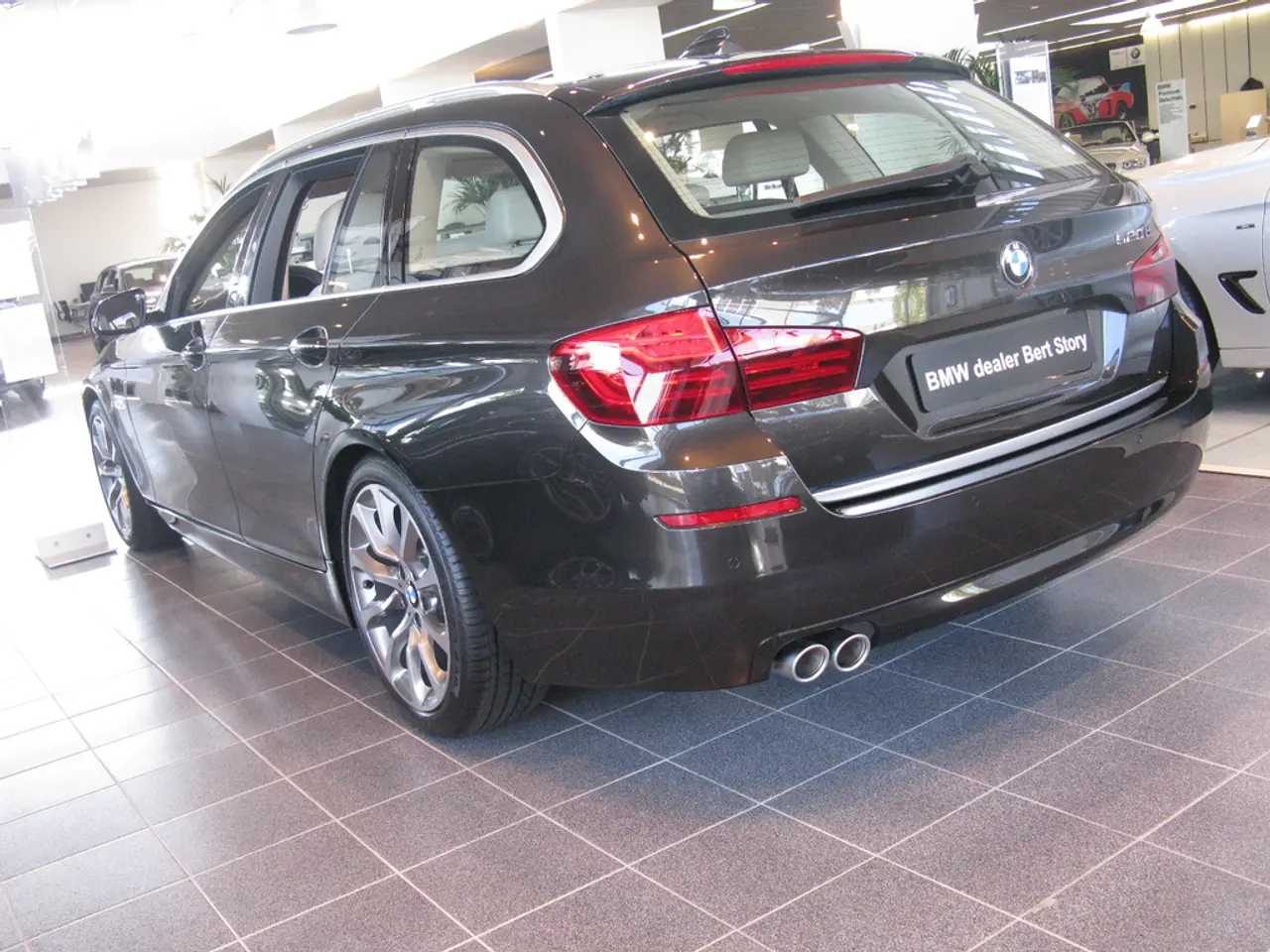Rise in Electric Vehicle Adoption: A 60% Spike in New Registrations for Electric Cars
In the heart of cities across Germany, electric cars are becoming a common sight on the roads. Almost every fifth new car registered is now a battery-powered vehicle, marking a significant shift in the German car market.
This trend towards electric mobility is gaining momentum among Germans, with more than half of potential car buyers now imagining driving electrically in the future. The growing range of electric car options should help decrease the hurdles associated with the technology in the future.
The current trends in electric car registrations in Germany show strong growth with record production and rising market shares. In the first half of 2025, German manufacturers produced 635,000 battery electric vehicles (BEVs), making up about 25% of total car production in Germany. New registrations of electric vehicles jumped significantly, with July 2025 showing a 66% increase in EV registrations compared to the previous year, totaling 75,800 units that month alone.
Pure electric vehicles accounted for 27% of German car exports, illustrating Germany’s strengthening position as a leading EV production and export hub. Both BEVs and plug-in hybrid electric vehicles (PHEVs) experienced growth, with PHEVs seeing even higher percentage increases at times.
However, the transition has been uneven partly due to a policy setback in 2023 when the government ended electric car subsidies abruptly, causing a collapse in sales. The current government has promised to reintroduce incentives, reflecting the critical role subsidies and policy stability play in market confidence and growth.
While electric car adoption is growing quickly, the broader transport emissions reduction goals require not just increased EV registrations but also developments in charging infrastructure and clean electricity supply. Over one-third of charging now comes from self-generated renewable electricity—a record but still underscoring ongoing infrastructure needs.
Electric cars are contributing to environmental protection. Those who opt for green electricity can significantly reduce their personal carbon footprint with electric cars. Most electric car models now offer driving ranges between 300 and 500 kilometers, sufficient for daily use.
The question is no longer if, but when it will be worth switching to e-mobility for the individual. Electric cars do not emit CO2 locally, improving air quality, especially in cities. In July 2021, over 48,000 purely battery-electric vehicles were newly registered, marking a 58% increase compared to the previous year.
In some cities, electric car drivers may qualify for exclusive benefits such as free parking. The insufficient charging infrastructure in some regions is a challenge, but it is expected to improve with technological progress.
In summary, Germany’s electric car market is expanding rapidly, supported by strong local production and exports, significant registration growth, and increasing consumer adoption. However, future growth depends heavily on stable policies, renewed incentives, and infrastructure expansion.
Science and technology are playing crucial roles in the development of environmental-science, as seen in the growing trend of electric cars in Germany. The advancements in battery technology and charging infrastructure are key factors contributing to the increase in electric car registrations, making up about 25% of total car production in Germany by the first half of 2025. This growth is expected to continue with the reintroduction of government incentives and improvements in charging infrastructure, making e-mobility more accessible and appealing to potential buyers.




